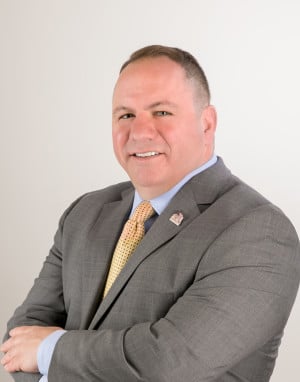The time has come for a new approach to subsidizing transit ridership. The success of the commercial real estate market in Greater Boston, and the related boom in technology and life sciences employment, provides a unique opportunity to consider anew how Massachusetts ensures that the benefits of the local economy reach workers at every level of the workforce.
Relying on the principles of charity while ensuring that the entire workforce can contribute to the Massachusetts economic engine, the time has come for a partnership between industry and the workforce needed to support it. We need a partnership between the Massachusetts Bay Transportation Authority (MBTA), corporations that offer MBTA pass programs through payroll deductions and the employees of those companies. The concept is to work with companies that offer their employees the ability to purchase an MBTA pass on a pre-tax basis.
These companies would offer their employees – on a voluntary basis – the option to “round up” to the nearest $1 or $5 increment. For instance, an MBTA DailyLink pass is currently $84.50 monthly. An employee could voluntarily donate $0.50 to the program, rounding up to $85, or $5.50, rounding up to $90 per month.
Likewise, a commuter rail pass for Zone 4 is currently $130.25. The cost of this pass could be rounded up to $131, for a donation of $0.75, or $4.75, rounding up to $135.00. A variation on this theme might be that the company would donate the round-up amount after the employee paid for the pass.
Round-Up Campaigns
This program could be modeled on the very popular, voluntary “round up” campaigns for charity that are sponsored by grocery stores and other retail outlets. These programs have very positive response rates. It would not take long before this program would generate substantial revenue for a discounted (or free) transit pass program for disadvantaged populations.
Eventually, this program could be expanded to all purchases of MBTA fares, to include the fare machines in the stations themselves. Since this would take some effort to program the ticket dispensing machines, and require some additional accounting on the part of the MBTA, this approach would likely need to be a second phase of the program. However, the same complex issues would not apply to private companies in the same way when they are voluntarily collecting round up funds and putting them in trust for use to subsidize passes.
Funds that are collected would be held in trust in a deposit account at a participating bank. The trust funds would be administered by a nonprofit agency. The funds could be disbursed to subsidize passes for participants currently in the workforce, working below an established income rate. To determine eligibility for a subsidy, some objective status could serve to be proof of eligibility. For instance, eligibility could be based on eligibility for SNAP/Food Stamps or some other government standard related to income. Staying with an objective standard avoids the need to spend time and resources coming up with, and administering, a new standard.
To move forward with this concept, it will be critical to identify a corporate sponsor with a large MBTA employee pass program that would serve as a pilot program. It is also necessary to identify a willing financial institution to hold the funds in trust – preferably also an MBTA pass program participant. To the extent one entity could serve both roles (for instance, a company like State Street), that would be optimal.
This idea has been floated to the Massachusetts Department of Transportation and has received a very favorable reception. However, there are a lot of priorities at MassDOT right now. Getting traction is difficult in an environment that is struggling to keep pace with an aging transit system. It will likely take a large corporate sponsor to push this idea to the forefront with MassDOT and the state.
The current economic climate is very favorable for the success of Massachusetts based companies. Unfortunately, not all of our workforce is able to share in the success of the economy, with rising costs of housing and transportation eroding their already low incomes. This program presents a unique, charity based opportunity to move the needle on the affordability of mass transit in Boston, without affecting the state’s or the MBTA’s financial position. The time has come for a new approach. Let’s make our transit pass costs a little fairer.
William F. Lyons Jr. is president of Fort Hill Cos. of Boston.




 |
| 
